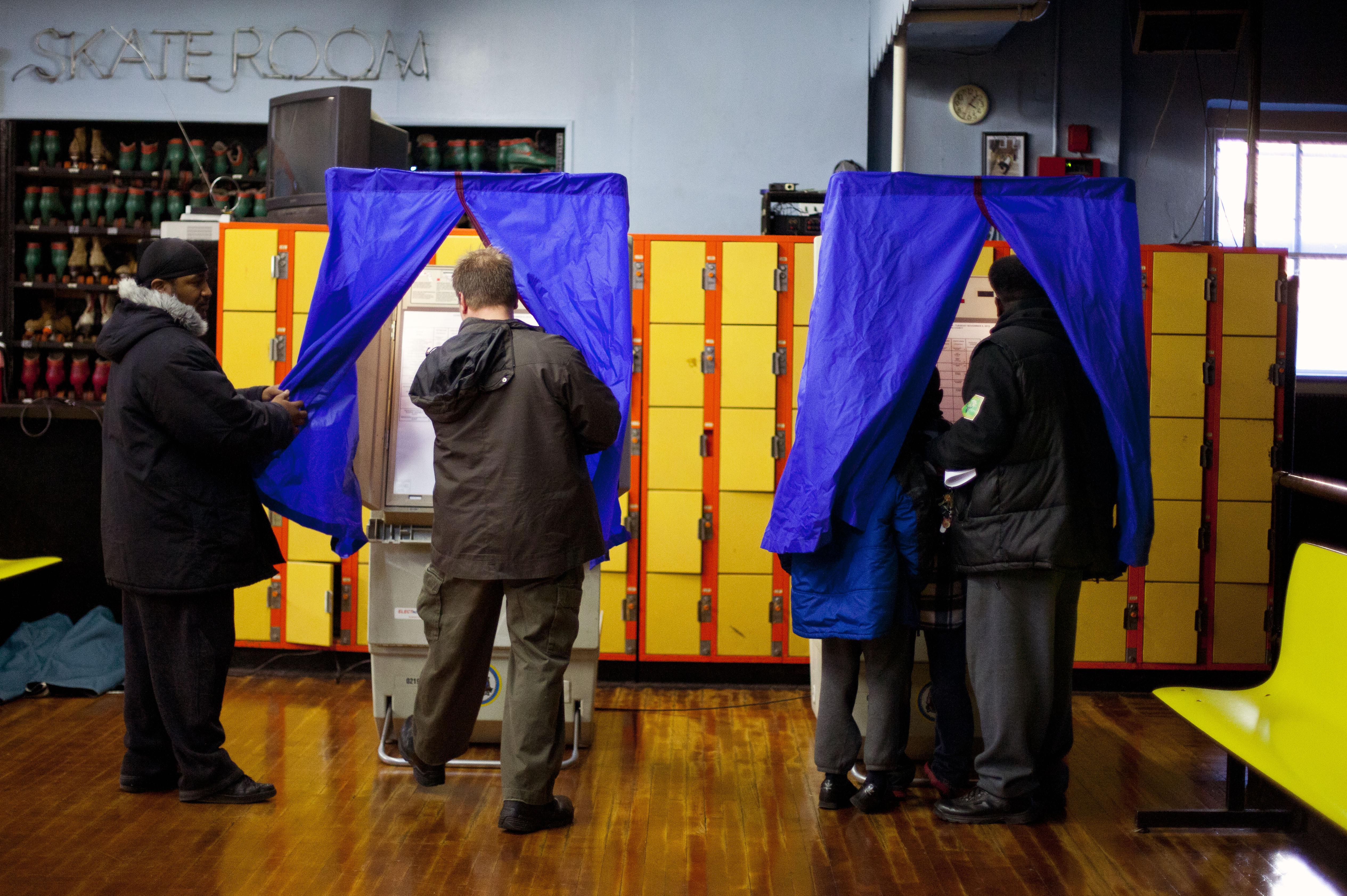Via Greg Sargent, we find that Republican dreams of splitting up electoral votes by congressional districts are still alive in two states. In Michigan, over the weekend, Republicans met in Lansing and overwhelmingly voted to endorse Rep. Pete Lund’s bill to do that—a bill that Lund admits only failed previously because Republicans thought Romney could win the state. But the Free Press story on the vote finds Gov. Rick Snyder backing away from his party.
At a brief meeting with the press, he reiterated that it’s “not the appropriate time” to discuss it. “The right way is to talk about it in a bipartisan way … just prior to a census,” Snyder said.
What he means is this: The 2011 gerrymander made it effectively impossible for a Democrat to win most of Michigan’s electoral vote in a semi-close race. In 2008, under the old lines, Barack Obama carried the popular vote by 16 points and carried 12 of the state’s 15 districts. In 2011, the GOP packed Detroit metro area Democrats into five districts. Accordingly, Obama won the state by nine points—bigger than Bush’s margin over Dukakis, bigger than Reagan’s margin over Carter—but under a split system he would have won only seven of Michigan’s 16 electoral votes. (They went from 15 to 14 districts after the census.)
There’s a weird tendency among wisemen to pronounce this movement not just dead, but stillborn. During the first wave of this stuff I kept arguing with Neil King, the Wall Street Journal’s fantastic lead political reporter, who called the controversy a “tempest without a teapot.” But there are two teapots! In Pennsylvania you’ve got a GOP legislature and a party worried about losing the governor’s office, and in Michigan you have a shrunken but still dominant GOP legislature that has forced the governor to the right more than once already.
